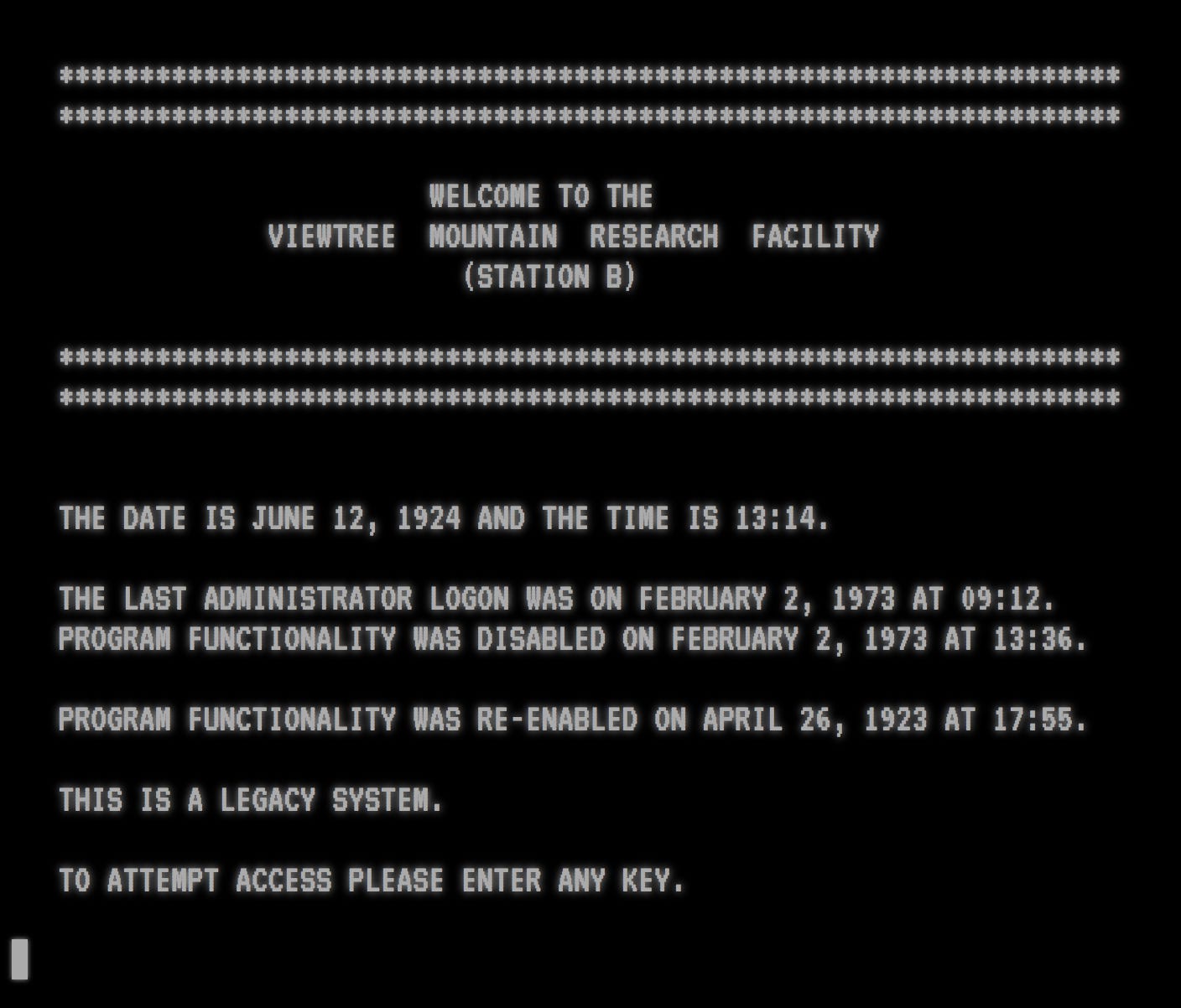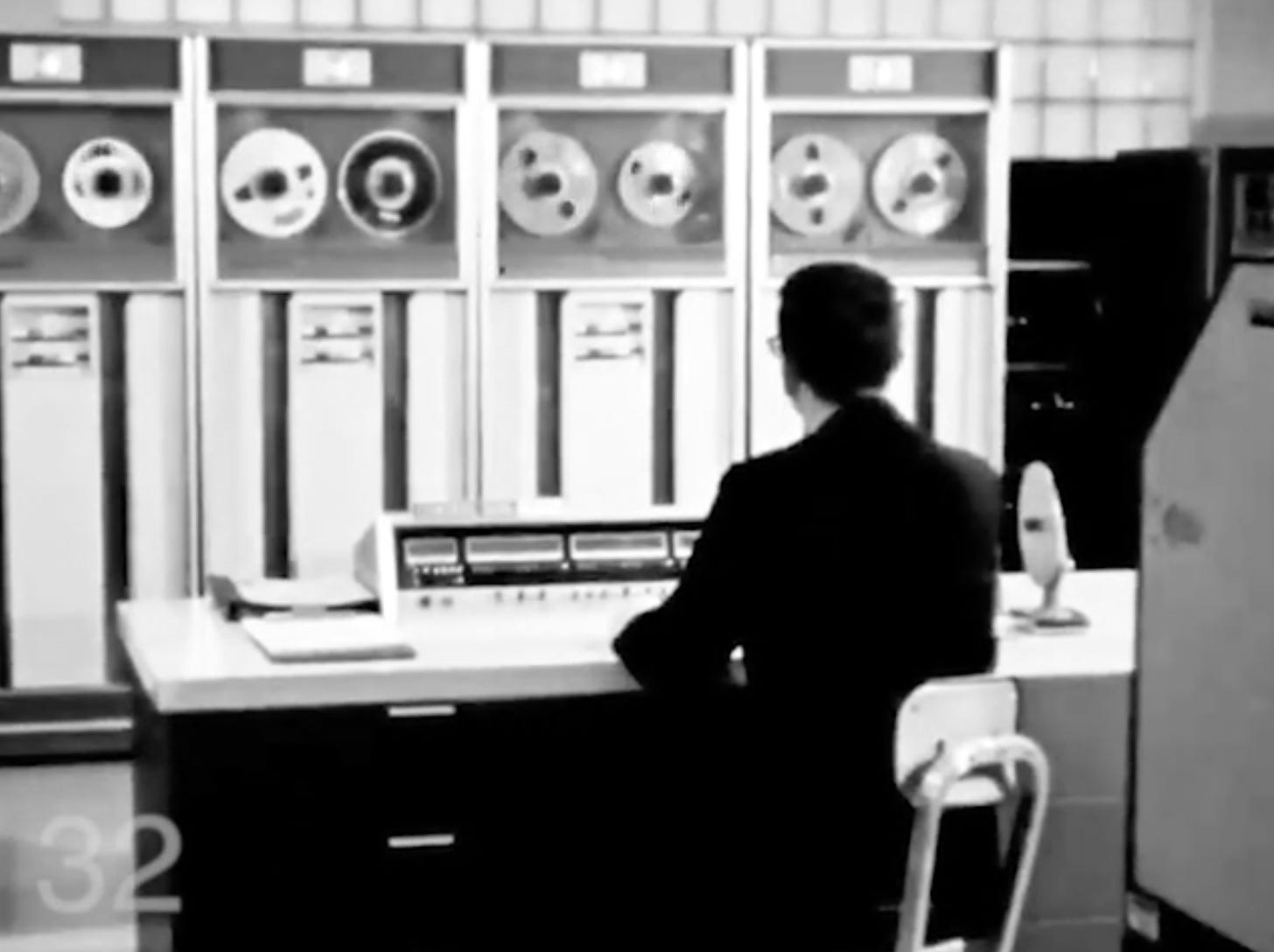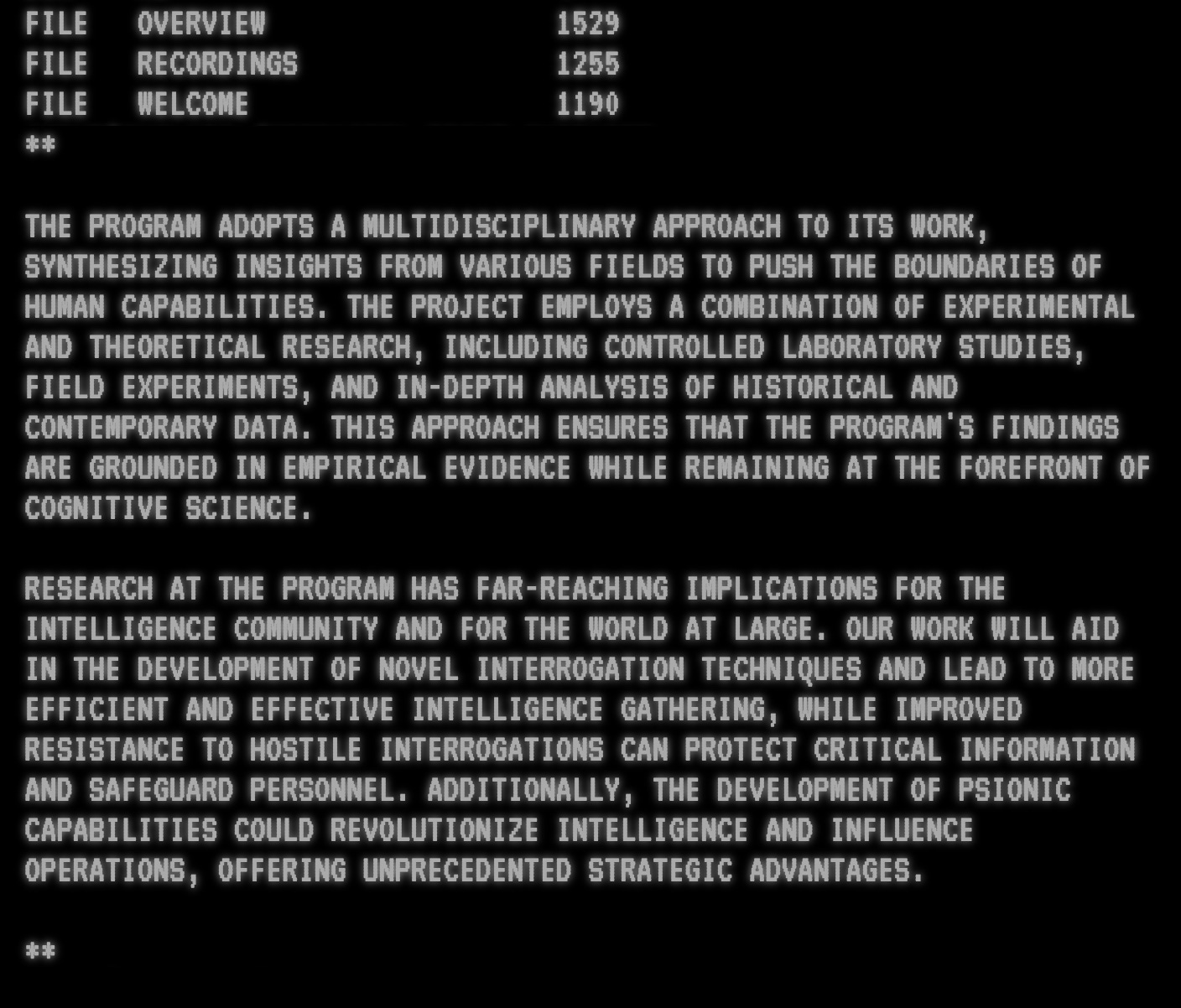Trevor Paglen
by Toniann Fernandez
I open Cyclops and I am scared. The basic black and white digital interface requires knowledge of 1970’s computer systems that few have access to today. The word “WELCOME” on the screen creates an ominous feeling in my gut that I am in a place that I should not be, being warmly greeted by people who know these technologies and will therefore be able to take whatever they want from me with very little difficulty. Defending myself against them would be like grasping vapor. Somehow I imagine attempting to do so would only yield more information for them to use at the Viewtree Mountain Research Facility. How they will use it is as opaque to me as logging into the system, the directions for which read “TO ATTEMPT ACCESS PLEASE ENTER ANY KEY.” Attempt. To enter Cyclops is to enter a world of PSYOPS realism. Cyclops should not be played alone.
More specifically, Cyclops can not be played alone. The skills required to advance through the game include but are not limited to knowledge of cryptography, vintage computers, logic, music, open source intelligence, and the history of PSYOPS, surveillance, media and music. “The first thing to know about Cyclops is that you will need help,” says Trevor Paglen, the artist and geographer that built the public artwork in the form of a legacy system and alternative reality game. For reference, a Beta version of Cyclops was launched at the Chaos Communication Congress, in 2023, a technology conference where a group of 700 professional hackers played the game around the clock and after 3 days, reached level four. The world of Cyclops is sprawling and amorphous. The point is to break its codes and figure it out. Some sources say there are far more than four levels. Since the conference, a group of players has assembled on Discord, and together, they pool their skills to crack codes on the old main frame to reveal more codes, clues, and mind control labyrinths referential to the world of cybernetics of the 50s, 60s, and 70s. Do Not Research assembled a collaborative team of dozens of international players. Over the course of several weeks, DNR progressed up to 53% completion of level 3.
Watch the trailer for Cyclops here.
To log into Cyclops is to enlist in the Viewtree Mountain Research Facility program. It is a handshake with a computer, Eliza, a reference to the first chatbot created in 1966, and she will like to make sure you are qualified to move forward. You will undergo a series of aptitude tests. She may ask you about simple number sequences, rivers, lakes, or something like, “If all zobs are flogs and all flogs are zobs are all slogs flogs?” Should you pass, you may be presented with piano music, or footage of something moving through the sky accompanied by the voice of someone who may or may not become relevant later in the game. You will need to employ knowledge of ASCII script and separate a series of audio tracks that will require you to think of sounds as shapes, or coordinates, or theories. Eliza will continue to show up, and when in the midst of solving a puzzle she asks you about your family. It will feel like psychological warfare, and that’s because it is. This is the effect of PSYOPS realism. As you play Cyclops and immerse yourself in the music, images, and riddles you feel that you are at the same time coming into contact with a kind of psychological manipulation. It works despite the fact that you are aware of it.
“What would it look like to make a public art project that exists natively online?” This curiosity was the impetus for Paglen to create Cyclops, furthered by a questioning of how we interact with each other and with media in an online space. If the story of minimalism was to consider a cube and consider your relationship to a cube, Cyclops asks the viewer turned participant to consider our relationship to the world of social media, private chatrooms, and digital media at large. By creating a game so difficult that it necessitates a group of people to come together to solve it, Paglen has generated a community of people interested in ciphers, coded messages, opsec (operations security), PSYOPS etc. The community itself and its shared cognition is an output of the artwork which also required a team to create. Paglen worked on Cyclops, full time, for a year with a team of 12. Its architects range from audio engineers to cryptography and digital security experts, all of whom lent their minds to the creation of a digital landscape that can now manipulate and be manipulated in kind.
Cyclops is a haunting descent into an alternative history of the internet. Could today’s online world be an extension of MK Ultra-like psychological controls? You must complete the program to find out.







